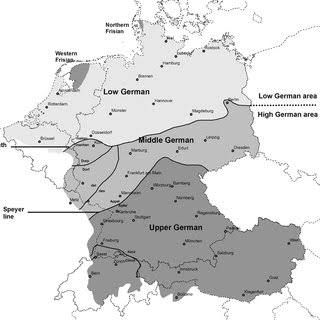Standardization Of English Language
Jun 18, 2019 • 1706 views

Language standardization is a process by which conventional forms of a language are established and maintained. It occurs as the development of a language that takes place naturally in a speech community or as an effort made by the community members in order to impose one dialector variety as the standard one. Language standardization therefore is the process of maintaining and establishing the conventional forms of a language. Standardization is necessary in order to establish an agreed orthography through communications. Standardization is concerned with the linguistic forms like corpus planning, which means selection and codification as well as the social and communicative functions of language like status planning that is implementation and elaboration. Standard languages are also discursive projects and standardization processes are the development of specific discourse practices and these discourses provides the desirability for uniformity and correctness in the usage of language.
Spelling Reformation:
The way we spell words seems integral to our identity but the spelling is neither fixed nor permanent, and there has is a long history of attempts to reform it, some more successful than others. English bristles are born of hybrid origins, diverse influences and other historical contingencies. Spelling reform started as early as the 12th century when the unknown author adapted the latin alphabet for Old Icelandic, detailing the phonological principles. In the 16th reform, efforts began with Sir John Cheke and Sir Thomas Smith who reconstructed ancient greek pronunciation and then applied them to English. In 1622 the Royal Society was founded and created remove a committee created for improving the English language including spelling reform.

Process of Standardization:
English is derived from the Roman alphabet that was brought by the Christian missionaries in Anglo-Saxon England (600s). Monks who wrote in Old English language added new sounds that could not be written with the Roman alphabet to represent Anglo-Saxon words . At this point, there was no standard orthography, or system of spelling words as the language was changing quickly. After the Norman Conquest in 1066, English was replaced by French and the language was used for writing official documents related to law and government. Scribes were trained in French, and they used different set of rules for spelling than used by the earlier scribes in Anglo-Saxon England. During this time writing was not only used for religious purposes but also for governmental purposes. With the development of printing in the 1400s English changed as the language that was used for financial and legal record keeping and bureaucracy. As the industry of publishing developed, thus it pushed for consistent spellings to facilitate their process. The need for economic profit lead the publishers to standardize the language. The process of development of England as a Protestant country had an effect on spelling and the standardization of English. Therefore the motivation behind the standardization of the language was National Identity. The King James Bible became the standard Bible and its spellings set standards for written English. The production of dictionaries in 18th century further standardized the language.
